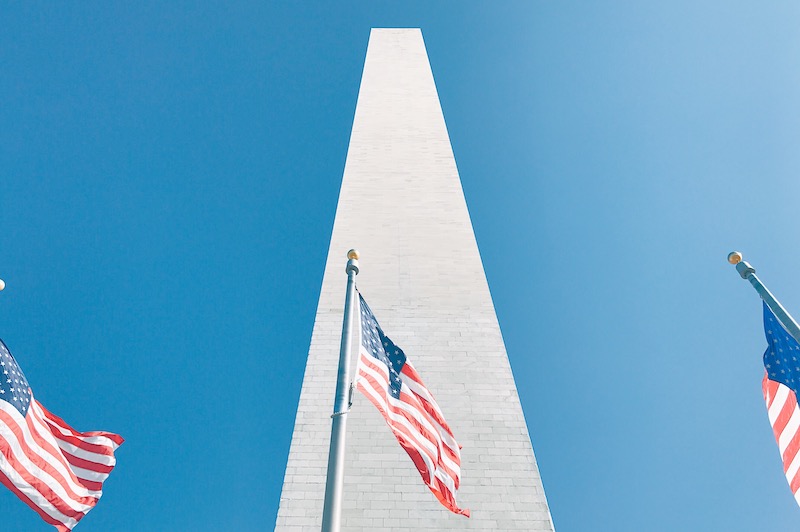In today’s politically polarized society, we feel the need to cling tightly to what we believe and plant a foot firmly against any opposing opinions. If we let in even a tiny outside idea, that small crack is all the enemy will need to break us apart. Compromise has become a dirty word, reminiscent of failure and stagnation. It doesn’t mean one has to change, it means one has to settle.
The primary challenge with standing firm against political opposition is adopting a dogmatic defense of our own side, which manifests in an aversion to self-criticism and self-reflection. When we focus too heavily on attacking the opposition, we lose perspective on what vision we’re defending. We either become infatuated with our side, failing to acknowledge its shortcomings, or forget what has already been accomplished. The goal becomes making the opposition look worse than us rather than providing a positive, alternative vision. In the case of putting America “first,” we should be quick to adopt the latter strategy.
At a cursory glance, this may sound like a defense of nationalism, although this term cannot be narrowly defined as putting America “first.” Nationalism is broadly what defines a nation – it requires boundaries and limits. Nationalism emphasizes a focus inward, the responsibility a government has to its people, and then the involvement a country should have with the world. It stands between excessive globalization and uncompromising isolationism. It acknowledges first domestic order and flourishing, while also realizing interconnectedness can allow nations to impact each other in positive or negative ways.
If we’re focused on domestic affairs, why should we care how we impact other nations (or vice versa)? Simply because putting America “first” does not mean acting as if it is the only nation that exists. In fact, for America to be “first,” there must be others involved. Similar to the idea of a free market, it is the partially the reality of competition that drives a nation to improve itself. Competition is derived from a recognition that there are other nations co-existing in the international space. In the same way that we can look to our history and identify ways in which our nation has changed for the better, we too can look outward to find motivation for positive changes in the future.
How, then, can we move forward? It must be a combination of looking both outward and inward—inward toward our complex history, and outward toward our fellow contemporary nations. This requires nuance, a balanced understanding of our historical flaws and successes, coupled with a careful look at the international world around us.
Indeed, it is diversity itself that allows for us to achieve this nuance. Only when we look beyond ourselves can we discern what is better, what is worse, and why we should aim to improve. The influence of various cultures does not equate to putting America “last.” Countries, nations, people groups – these can all be a part of how America changes for the better.
We do not have to resort to isolationism to maintain a unique national identity. Rather, we must be confident that our nation can discern what is considered positive change, maintain resiliency, and ultimately strengthen the understanding of who we are. Ideals embedded into the American project must continue to be realized, and that cannot be done in a theoretical or practical vacuum.
The conversation surrounding nationalism transcends whether or not America should adopt widespread isolationism. It’s about weathering domestic disagreements, identifying common ground, and humbly seeking forward-looking improvements through competition in the international sphere. Ultimately, change must prudently considered—maintaining what is good and removing what is bad—and it’s only in the presence of competition and compromise that it can be properly realized.
Alyssa Leston is a rising senior at Gordon College. She was a participant in the 2021 Summer Honors Program course “Christianity, National Identity, and America’s Role in the World, ” taught by Dr. Paul Miller.



